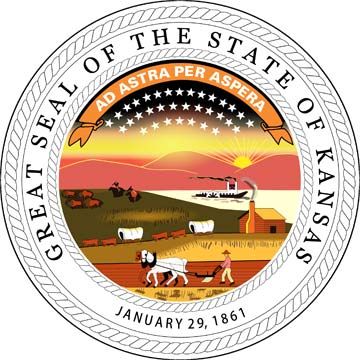“Punting the Pundits” is an Open Thread. It is a selection of editorials and opinions from around the news medium and the internet blogs. The intent is to provide a forum for your reactions and opinions, not just to the opinions presented, but to what ever you find important.
Thanks to ek hornbeck, click on the link and you can access all the past “Punting the Pundits”.
Follow us on Twitter @StarsHollowGzt
New York Times Editorial Board: Voter ID on Trial in Texas
In April, a federal judge in Wisconsin invalidated that state’s voter-identification law, finding that it would disenfranchise hundreds of thousands of eligible voters in a phony attempt to prevent a problem – in-person voter fraud – that does not exist.
Last week, the spotlight turned to the federal court in Corpus Christi, where the Justice Department and several advocacy groups are fighting Texas’ absurdly strict voter-ID law. Passed in 2011 by the Republican-dominated Legislature, the law accepts as proof of identity a concealed-weapon permit but not a student ID card. [..]
Rather than find a way to appeal to a wider swath of voters, Republican lawmakers rig the game with pointless obstacles to voting. The courts are finally catching on, but in the meantime, many of the nation’s most vulnerable citizens are shut out of the democratic process.
Paul Krugman: Scots, What the Heck?
Next week Scotland will hold a referendum on whether to leave the United Kingdom. And polling suggests that support for independence has surged over the past few months, largely because pro-independence campaigners have managed to reduce the “fear factor” – that is, concern about the economic risks of going it alone. At this point the outcome looks like a tossup.
Well, I have a message for the Scots: Be afraid, be very afraid. The risks of going it alone are huge. You may think that Scotland can become another Canada, but it’s all too likely that it would end up becoming Spain without the sunshine. [..]
But Canada has its own currency, which means that its government can’t run out of money, that it can bail out its own banks if necessary, and more. An independent Scotland wouldn’t. And that makes a huge difference.
Could Scotland have its own currency? Maybe, although Scotland’s economy is even more tightly integrated with that of the rest of Britain than Canada’s is with the United States, so that trying to maintain a separate currency would be hard. It’s a moot point, however: The Scottish independence movement has been very clear that it intends to keep the pound as the national currency. And the combination of political independence with a shared currency is a recipe for disaster. Which is where the cautionary tale of Spain comes in.
They are one of many reasons that U.S. health care has the world’s highest overhead costs
American hospitals spend a huge and growing share of their revenue on overhead, a study published today in Health Affairs shows. Getting those costs down should be a national priority.
American hospitals on average spend 25.3 cents out of each dollar of revenue on overhead, with for-profit hospitals spending 27 percent and nonprofits a bit below the average.
By contrast, the Netherlands and England, which have the next highest overhead costs, spend 19.8 percent and 15.5 percent, respectively. Both are moving toward market-based financial models, so as with the U.S. overhead costs are likely to rise.
Compare Canada and Scotland, which have single-payer health care systems. Their hospital administrative costs are half those in America.
The new study helps explain why for each $1 the 33 other countries with advanced economies spend per person on universal health care, the United States spends $2.64 – and yet more than one-fifth of Americans have no or poor health insurance. A significant reason America’s health care system is so expensive and inefficient turns out to be those annoying co-pays.
Robert Kuttner: Free Scotland, Free New England!
Until recently, few people took seriously the possibility that Scotland might actually secede from the United Kingdom. However, with a referendum scheduled for September 18, the latest polls show secession in the lead for the first time, and gaining dramatic momentum.
The British government is frantically scrambling to offer the Scots a much more autonomous form of federalism, to head off the drive for full independence. Meanwhile, the specter of a diminished Britain has led to speculative attack against the British pound.
What’s going on here? [..]
The Scottish Nationalist Party and its leader Alex Salmond, the first minister of the Scottish Parliament, are highly popular with local voters. Salmond pushed hard for this referendum, and in 2012 won the consent of the British government (what was London thinking?) The Tory government campaign urging Scottish voters to vote to stay in the UK has been spectacularly inept.
It’s anybody’s guess what will happen if independence wins. At the very least, it would put pressure on London to convert the United Kingdom into a far more federalist country. Even so, full independence for Scotland is not out of the question.
Robert Reich: The Bankruptcy of Detroit and the Division of America
Detroit is the largest city ever to seek bankruptcy protection, so its bankruptcy is seen as a potential model for other American cities now teetering on the edge.
But Detroit is really a model for how wealthier and whiter Americans escape the costs of public goods they’d otherwise share with poorer and darker Americans.
Judge Steven W. Rhodes of the U.S. Bankruptcy Court for the Eastern District of Michigan is now weighing Detroit’s plan to shed $7 billion of its debts and restore some $1.5 billion of city services by requiring various groups of creditors to make sacrifices.
Among those being asked to sacrifice are Detroit’s former city employees, now dependent on pensions and health care benefits the city years before agreed to pay. Also investors who bought $1.4 billion worth of bonds the city issued in 2005. [..]
No one knows whether Judge Rhodes will accept or reject the plan. But one thing is for certain. A very large and prosperous group close by won’t sacrifice a cent: They’re the mostly-white citizens of neighboring Oakland County.
Oakland County is the fourth wealthiest county in the United States, of counties with a million or more residents.



 The name is linked to Samuel Wilson, a meat packer from Troy, New York, who supplied barrels of beef to the United States Army during the War of 1812. Wilson (1766-1854) stamped the barrels with “U.S.” for United States, but soldiers began referring to the grub as “Uncle Sam’s.” The local newspaper picked up on the story and Uncle Sam eventually gained widespread acceptance as the nickname for the U.S. federal government.
The name is linked to Samuel Wilson, a meat packer from Troy, New York, who supplied barrels of beef to the United States Army during the War of 1812. Wilson (1766-1854) stamped the barrels with “U.S.” for United States, but soldiers began referring to the grub as “Uncle Sam’s.” The local newspaper picked up on the story and Uncle Sam eventually gained widespread acceptance as the nickname for the U.S. federal government.
Recent Comments